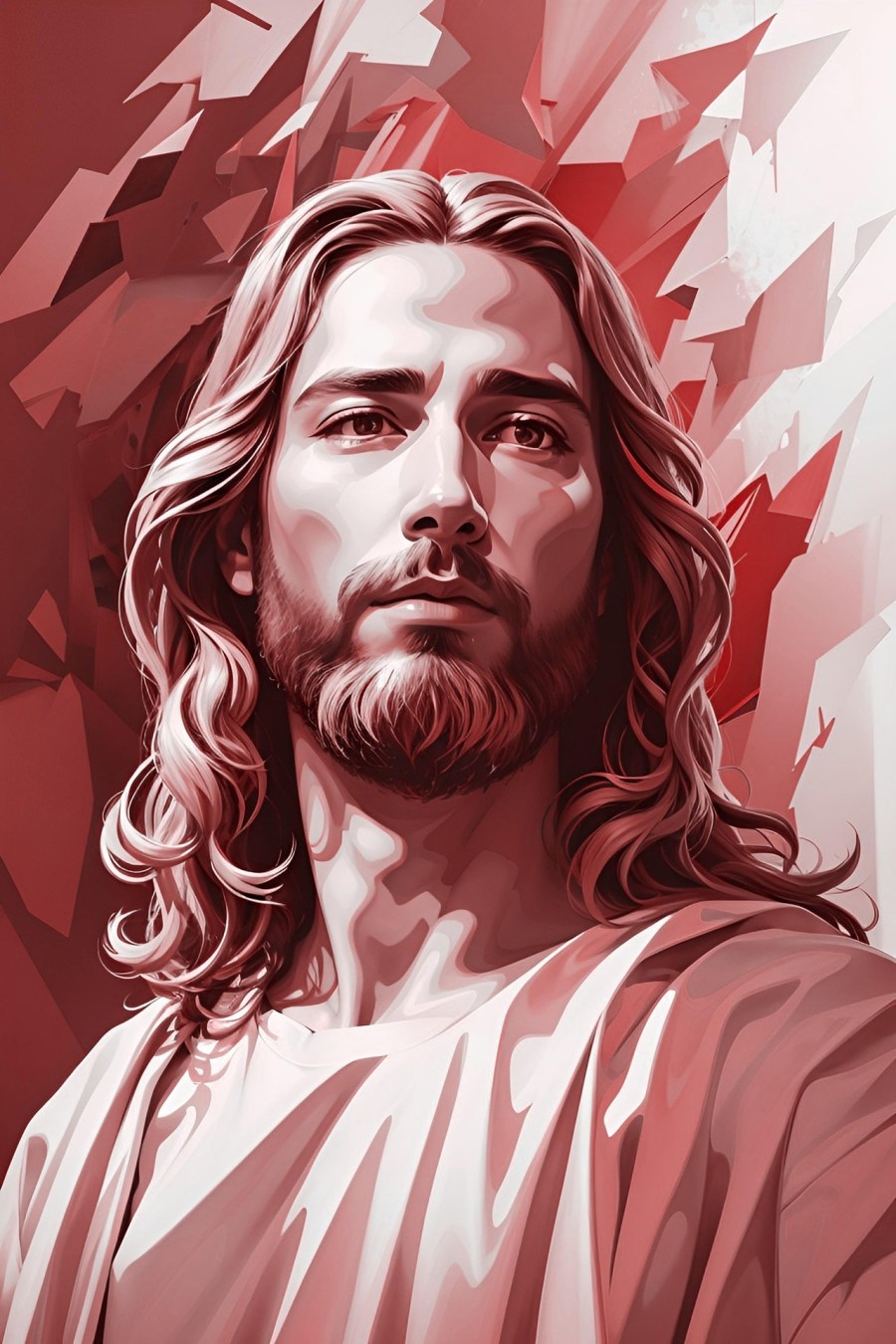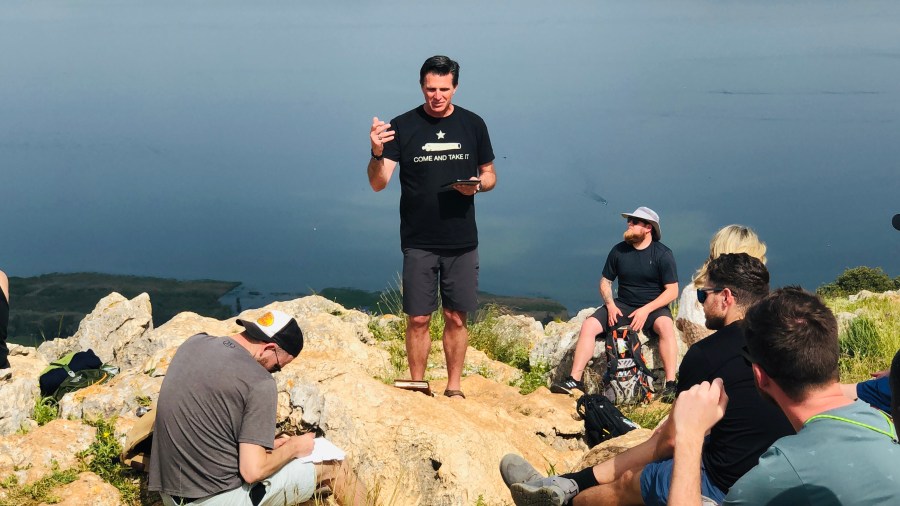I’m so thankful for the Spiritual Blessings that are ours in Christ Jesus.
“Praise be to the God and Father of our Lord Jesus Christ, who has blessed us in the heavenly realms with every spiritual blessing in Christ.”
Ephesians 1:3 NIV
After spending the last two months in his letters, I woke up on Thanksgiving morning prompted by God’s Spirit to take some time to reflect on spiritual gratitude through the eyes of the Apostle Paul… what I have to be thankful for “in Christ.”
I began this simple exercise in gratitude by recalling some familiar verses in the Pauline epistles, but then quickly found myself leafing through each letter, scanning for spiritual blessings. I began at 6:30 in the morning leafing through Romans, and finally finished with Philemon around 10:30, four hours later.
Sonlife’s resource, 33 Things That Happen at the Moment of Salvation, is only the beginning of mining the depths of all that is ours in Christ Jesus. The list I compiled Thanksgiving morning is not exhaustive, I’m sure, but it filled my heart with awe in worship for the one in whom I’ve found blessings beyond comprehension.
The list I compiled Thanksgiving morning is too long to share in a single blog, so I’ve decided to split it up and share it with you to reflect on between Thanksgiving and Christmas, the perfect season to worship our Savior for all the spiritual blessings that are ours in Him. Enjoy this first installment of Spiritual Blessings that are ours in Christ Jesus!
1. Thank you Father for the power of the gospel to save me through Christ!
“For I am not ashamed of the gospel, because it is the power of God that brings salvation to everyone who believes: first to the Jew, then to the Gentile.”
Romans 1:16 NIV
2. Thank you Father for demonstrating your love for me through Christ’s death.
“But God demonstrates his own love for us in this: While we were still sinners, Christ died for us.”
Romans 5:8 NIV
3. Thank you Father that in Christ I have been saved by grace.
“For it is by grace you have been saved, through faith—and this is not from yourselves, it is the gift of God—”
Ephesians 2:8 NIV
4. Thank you Father that in Christ I live with no fear of facing condemnation.
“Therefore, there is now no condemnation for those who are in Christ Jesus…”
Romans 8:1 NIV
5. Thank you Father that in Christ I have been justified freely by your grace.
“and all are justified freely by his grace through the redemption that came by Christ Jesus.”
Romans 3:24 NIV
6. Thank you Father that I have been given righteousness in Christ.
“This righteousness is given through faith in Jesus Christ to all who believe.”
Romans 3:22a NIV
7. Thank you Father that in Christ I now have peace with God.
“Therefore, since we have been justified through faith, we have peace with God through our Lord Jesus Christ,”
Romans 5:1 NIV
8. Thank you Father that in Christ I have access to your grace.
“through whom we have gained access by faith into this grace in which we now stand. And we boast in the hope of the glory of God.”
Romans 5:2 NIV
9. Thank you Father that in Christ my suffering is not without purpose.
“Not only so, but we also glory in our sufferings, because we know that suffering produces perseverance.”
Romans 5:3 NIV
10. Thank you Father that the hope I’ve found in Christ does not disappoint.
“And this hope will not lead to disappointment. For we know how dearly God loves us, because he has given us the Holy Spirit to fill our hearts with his love.”
Romans 5:5 NLT
11. Thank you Father that in Christ I’ve been saved from your wrath.
“Since we have now been justified by his blood, how much more shall we be saved from God’s wrath through him!”
Romans 5:9 NIV
12. Thank you Father that in Christ I am no longer your enemy.
“For if, while we were God’s enemies, we were reconciled to him through the death of his Son, how much more, having been reconciled, shall we be saved through his life!”
Romans 5:10 NIV
13. Thank you Father that in Christ I may live a new life.
“We were therefore buried with him through baptism into death in order that, just as Christ was raised from the dead through the glory of the Father, we too may live a new life.”
Romans 6:4 NIV
14. Thank you Father that I have been united with Christ.
“For if we have been united with him in a death like his, we will certainly also be united with him in a resurrection like his.”
Romans 6:5 NIV
15. Thank you Father that in Christ my old self was crucified.
“For we know that our old self was crucified with him so that the body ruled by sin might be done away with, that we should no longer be slaves to sin—”
Romans 6:6 NIV
16. Thank you Father in Christ I’ve been set free from sin.
“because anyone who has died has been set free from sin.”
Romans 6:7 NIV
17. Thank you Father that I have the promise of living with Christ.
“Now if we died with Christ, we believe that we will also live with him.”
Romans 6:8 NIV
18. Thank you Father that in Christ I have the gift of eternal life.
“For the wages of sin is death, but the gift of God is eternal life in Christ Jesus our Lord.”
Romans 6:23 NIV
19. Thank you Father that in Christ I have been delivered from slavery to my sinful nature.
“Thanks be to God, who delivers me through Jesus Christ our Lord!”
Romans 7:25a NIV
20. Thank you Father that in Christ I have been given life by your Spirit who now lives in me.
“And if the Spirit of him who raised Jesus from the dead is living in you, he who raised Christ from the dead will also give life to your mortal bodies because of his Spirit who lives in you.”
Romans 8:11 NIV
21. Thank you Father that in Christ the Spirit I have received will lead me.
“For those who are led by the Spirit of God are the children of God.”
Romans 8:14 NIV
22. Thank you Father that in Christ your Spirit confirms for me that I am your child.
“The Spirit himself testifies with our spirit that we are God’s children.”
Romans 8:16 NIV
23. Thank you Father that in Christ I am your heir.
“Now if we are children, then we are heirs—heirs of God and co-heirs with Christ, if indeed we share in his sufferings in order that we may also share in his glory.”
Romans 8:17 NIV
24. Thank you Father that in Christ your Spirit has been given to me to help me in my weakness.
“In the same way, the Spirit helps us in our weakness. We do not know what we ought to pray for, but the Spirit himself intercedes for us through wordless groans.”
Romans 8:26 NIV
25. Thank you Father that in Christ you are at work in all things for my good.
“And we know that in all things God works for the good of those who love him, who have been called according to his purpose.”
Romans 8:28 NIV
26. Thank you Father that your desire is to conform me to the image of your Son.
“For those God foreknew he also predestined to be conformed to the image of his Son, that he might be the firstborn among many brothers and sisters.”
Romans 8:29 NIV
27. Thank you Father that in Christ you are for me!
“What, then, shall we say in response to these things? If God is for us, who can be against us?”
Romans 8:31 NIV
28. Thank you Father that in Christ you will graciously give me all things.
“He who did not spare his own Son, but gave him up for us all—how will he not also, along with him, graciously give us all things?”
Romans 8:32 NIV
29. Thank you Father that in Christ I am more than a conqueror.
“No, in all these things we are more than conquerors through him who loved us.”
Romans 8:37 NIV
This blog is part 1 of a 5 part series on Gratitude.
This blogpost originally appeared on Sonlife.com.










